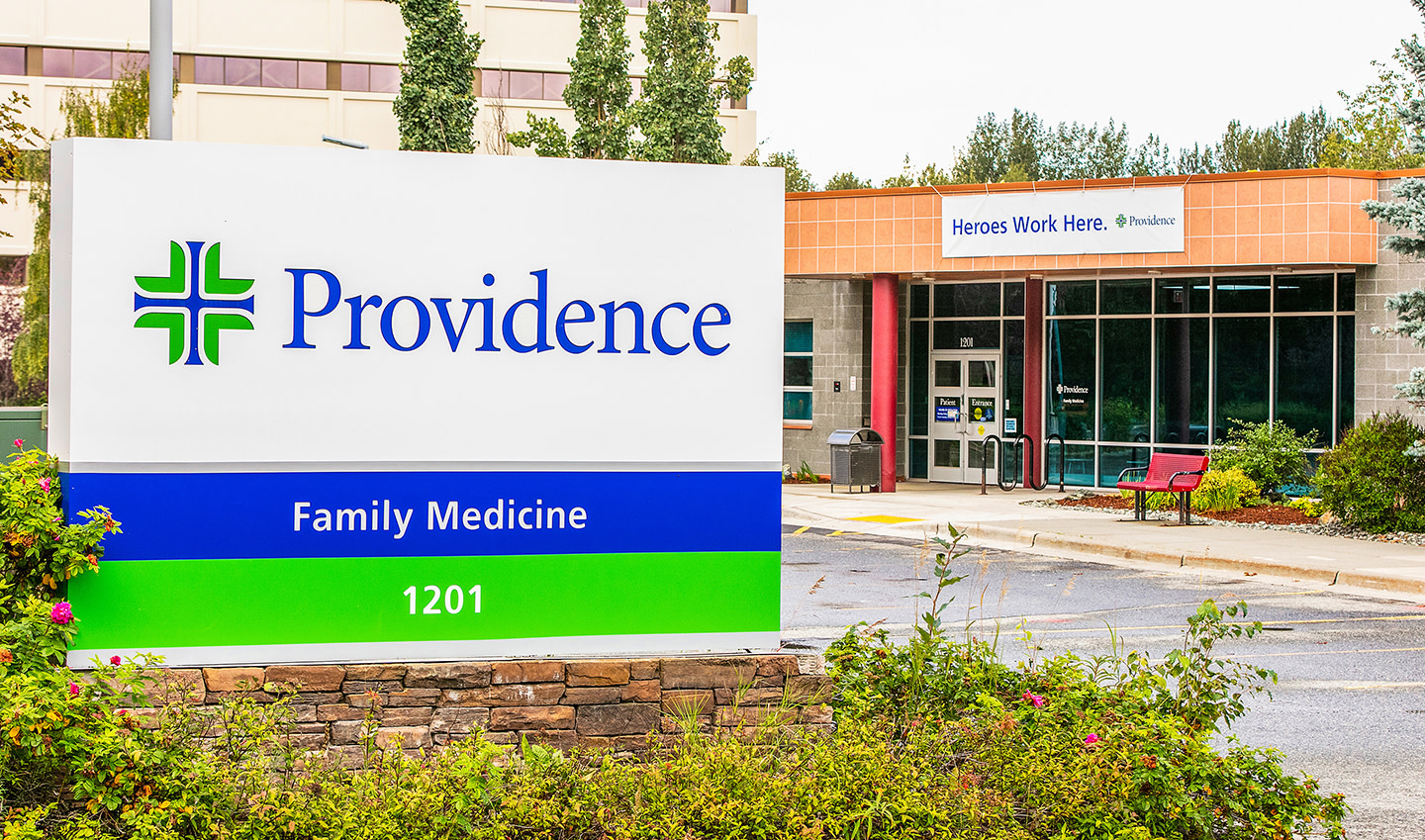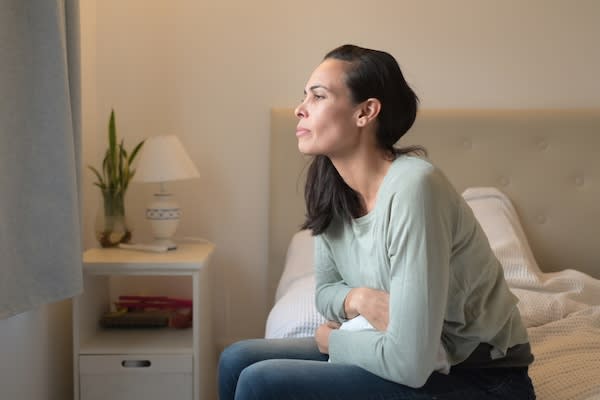Home remedies for cold and flu symptoms

[6 MIN READ]
In this article:
-
While a cold and the flu often have similar symptoms, the flu can be quite a bit more serious — sometimes even requiring hospitalization.
-
When you’re treating a cold at home, get plenty of rest, try a humidifier and drink plenty of fluids.
-
When you’re treating the flu at home, use honey and lemon for a sore throat and sleep as much as possible.
How to care for your cold or flu at home
When you come down with a common cold or the flu, it can feel like the world is ending. Yet, while you may be miserable in bed with a stuffy nose, painful cough and body aches, chances are you’ll feel better again soon if you just wait it out and rest.
But how do you know when you should care for your cold or flu at home, and when you might need help? Here, Sunil Adwani, M.D., a Providence internal medicine doctor who treats patients in Manhattan Beach, California, explains.
Recognizing symptoms of a cold or flu
Colds can cause a wide range of symptoms — from a little bit of congestion to a constantly flowing fountain from your nose. Here are a few of the most common symptoms of a cold:
- Body aches
- Cough
- Headaches
- Nasal congestion
- Runny nose
- Sore throat
- Sneezing
“Generally, people are not that sick with a cold,” says Adwani. “They’re miserable, but not that sick.”
The flu, on the other hand, can be more cause for concern. Similar to a cold, the flu is a respiratory illness that can infect the nose, throat and even lungs. However, since these illnesses are caused by different viruses, they can bring about different symptoms and range in severity of illness. While people usually recover quickly from a cold, the flu can sometimes cause serious health complications that require a visit to your doctor or urgent care.
The telltale signs of flu are body aches and fatigue. Other common flu symptoms include:
- Chills
- Cough
- Chest pain
- Fever
- Headaches
- Nasal congestion
- Runny nose
- Sneezing
- Sore throat
- Weakness
Cold and flu symptoms often overlap, making it hard to tell the difference between the two. The Centers for Disease Control and Prevention (CDC) offers an easy reference chart to tell the difference between a cold and flu.
What about RSV and other viruses?
RSV (respiratory syncytial virus) causes symptoms similar to a cold, but it can be more serious for infants and older adults, potentially leading to bronchiolitis or pneumonia.
COVID-19 causes more severe symptoms than a cold or the flu. Those symptoms can range from mild to severe, including fever, cough, shortness of breath, fatigue, muscle aches, loss of taste or smell, and gastrointestinal issues. The virus is also more likely to lead to hospitalization — especially in vulnerable populations.
“Many times, when you come into a doctor’s office with flu-like symptoms, you’ll get tested for both the flu and COVID,” says Dr. Adwani.
Home remedies that can help
There are plenty of things you can do at home for both a cold and the flu.
Cold
Here are a few ways to help relieve your cold symptoms at home:
- Get plenty of rest to help your immune system fight off the cold virus.
- Drink lots of fluids and eat chicken soup to help thin mucus and flush it out of your body.
- Try a humidifier to loosen congestion and help yourself breathe easier.
- Take over-the-counter pain relievers like Tylenol, Motrin or Advil to help relieve body aches and a decongestant to relieve your stuffiness. “You have to be a little careful about decongestants,” says Dr. Adwani, “because they may push your blood pressure up a bit. If you have high blood pressure, then decongestants are not a great idea unless you consult with a doctor first.”
- Gargle warm salt water (1/2 teaspoon of salt in one cup of water) to soothe a sore throat.
You may also want to talk to your doctor before taking over-the-counter cold medicine. Some medicines have ingredients that might interfere with a prescription. Your health care provider (or pharmacist) can help you find safe and effective relief for your cold symptoms.
Flu
Here are a few ways to help relieve your flu symptoms at home:
- Use honey and lemon for a sore throat – Honey has antibacterial properties, and lemon can give you lots of necessary vitamin C.
- Stay hydrated – Drinking plenty of fluids can help your body fight off bacterial infections and can keep you from becoming dehydrated — a big no-no when you’re sick.
- Sleep as much as possible – If you become too congested when you’re lying flat, try sleeping with your head upright.
- Drink hot tea or other warm liquids – Hot drinks, including hot water and ginger tea, can soothe a sore throat and help lessen the chills.
When to call a doctor or seek care
In general, says Dr. Adwani, the people who are most likely to need medical attention from a cold or the flu are those who have underlying health conditions, such as a weakened immune system, chronic obstructive pulmonary disease (COPD) or asthma. In cases of the flu, a doctor may be able to give you an antiviral medication if it’s been less than 48 hours since symptoms started.
Primary care, urgent care or ER for sickness
The question, then, is: Should you go to your primary care doctor, urgent care or the emergency room? “I would put urgent care in the same category as seeing your primary care doctor,” Adwani says. “You should just go ahead and go to urgent care if you have severe symptoms, such as sore throat, fever, ear pain and sinus pain, that are not getting better. You should go to the ER if you are having chest pains, struggling to breathe or are wheezy.”
“The vast majority of patients with colds and flus,” Adwani adds, “can be seen in primary care and urgent care.”
Providence offers many convenient options for same-day and urgent care to help get you back to feeling better soon. Schedule an appointment today.
Resources from Providence to help you feel better
The best way to protect yourself from complications of the flu is to get a flu shot. Providence has a number of locations and partners with national retailers to offer flu shots to anyone who needs one.
Contributing caregiver

Sunil Adwani, M.D., a Providence internal medicine doctor who treats patients at Providence Manhattan Beach Primary Care.
Find a doctor
If you are looking for a primary care or internal medicine provider, you can find one who’s right for you in our provider directory.
Download the Providence app
It’s all in the app: easily stay connected with Providence and your health. With the Providence app, you can schedule appointments, have virtual visits from the comfort of your home, get personalized health recommendations, access your health records and so much more. Learn more and download the app.
Related resources
Why young adults need a primary care doctor
Comprehensive guide to winter illness
This information is not intended as a substitute for professional medical care. Always follow your health care professional’s instructions.



